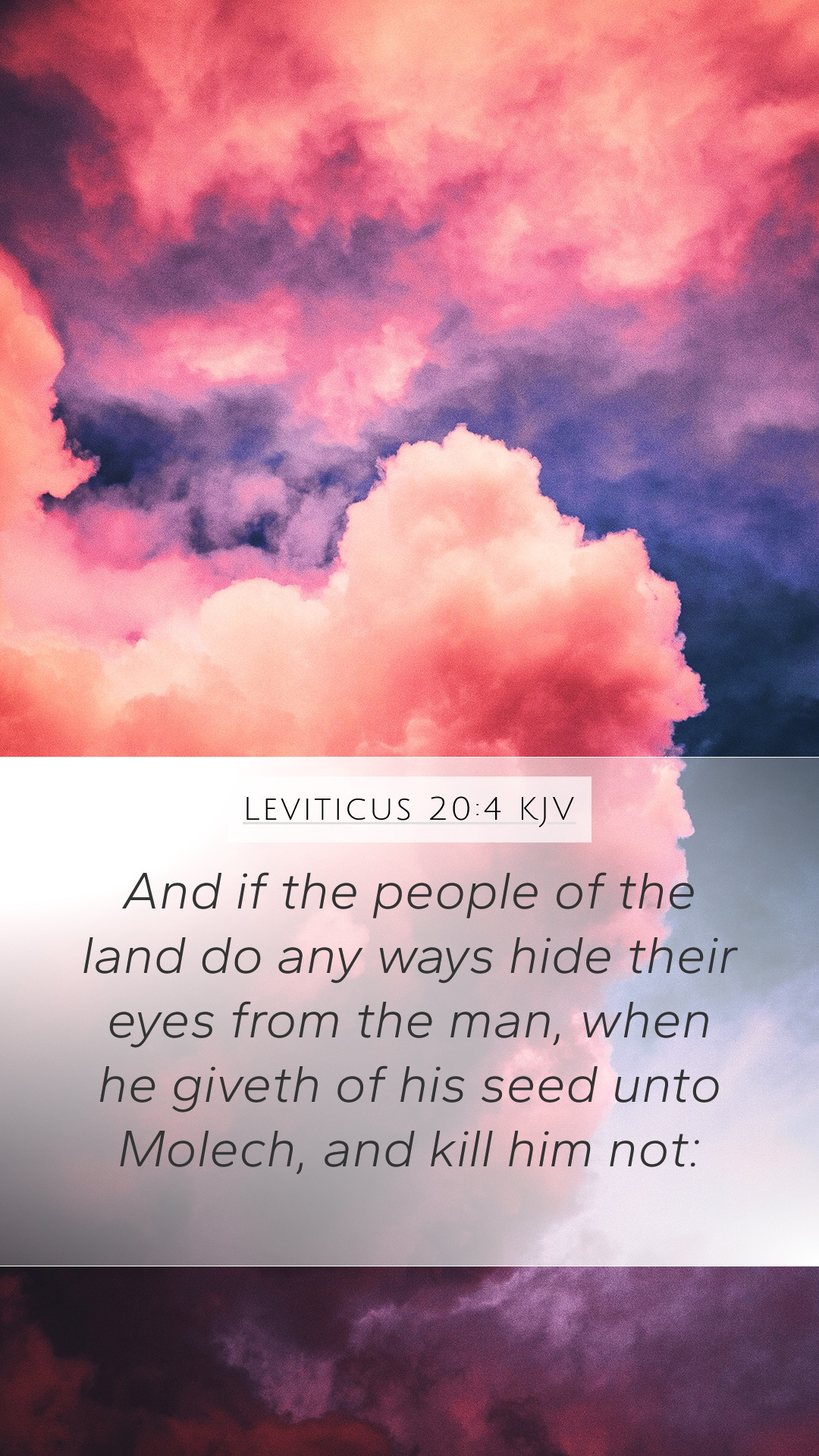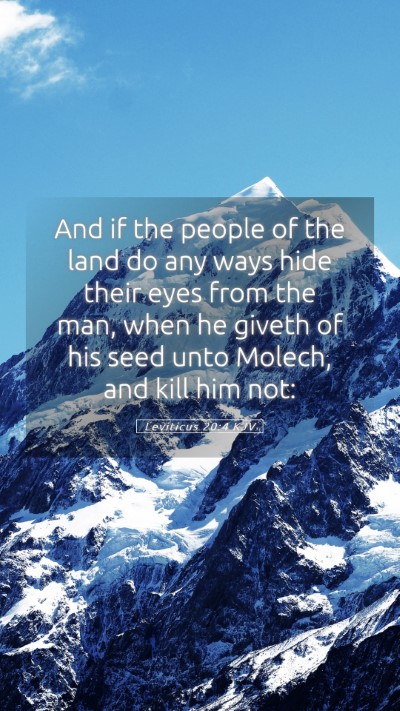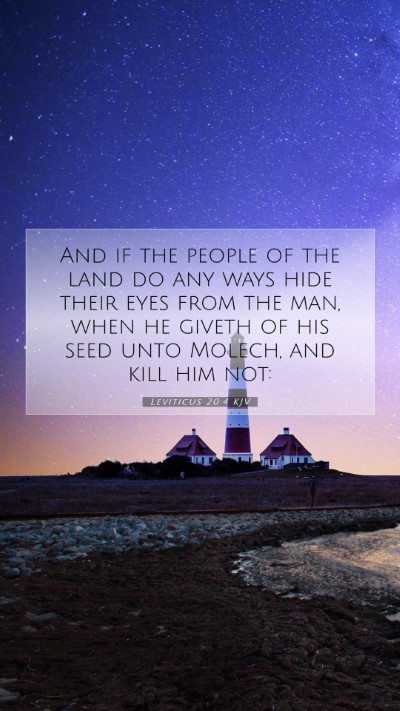Bible Verse Meaning: Leviticus 20:4
Leviticus 20:4 states, "And if the people of the land do any ways hide their eyes from the man, when he giveth of his seed unto Molech, and kill him not:" This verse addresses the serious issue of child sacrifice in relation to the worship of the pagan god Molech, condemning both the act and the complacency of the community.
Understanding Scripture: Insights from Public Domain Commentaries
1. Matthew Henry’s Commentary
Matthew Henry emphasizes the gravity of the sin of child sacrifice, linking it to idolatry. He notes that hiding one's eyes from such atrocities indicates a passive acceptance of evil within the community. This commentary suggests that indifference towards immoral practices can be just as sinful as the acts themselves.
2. Albert Barnes’ Notes on the Bible
Albert Barnes elaborates on the societal implications of this verse, highlighting that those who ignore the sin of sacrificing to Molech are culpable for their silence. He warns against the dangers of societal complicity, urging believers to take a stand against immoral practices, even when they go unnoticed by others.
3. Adam Clarke’s Commentary
Adam Clarke provides a historical context, explaining that the worship of Molech often involved horrific practices such as burning children alive. He stresses the importance of active involvement in protecting the innocent and denounces any form of tacit approval through silence. Clarke emphasizes that the community must hold each other accountable for actions that contravene God’s law.
Key Themes and Applications
- Sacrifice and Idolatry: The verse serves as a clear warning against the worship of false gods and the extremes to which such worship can lead, specifically the abhorrent practice of sacrificing children.
- Community Responsibility: This text underscores the role of communal accountability. Believers are called not only to avoid such sins but also to speak out against them.
- God’s Justice: The condemnation of those who allow such practices highlights God’s justice and moral order in society.
Related Bible Cross References
- Leviticus 18:21: "And thou shalt not let any of thy seed pass through the fire to Molech, neither shalt thou profane the name of thy God: I am the LORD."
- Jeremiah 32:35: "And they built the high places of Baal, which are in the valley of the son of Hinnom, to cause their sons and their daughters to pass through the fire unto Molech; which I commanded them not, neither came it into my mind, that they should do this abomination, to cause Judah to sin."
- 2 Kings 23:10: "And he defiled Topheth, which is in the valley of the children of Hinnom, that no man might make his son or his daughter to pass through the fire to Molech."
Conclusion: Applying Bible Verses to Daily Life
In today's context, Leviticus 20:4 serves as a powerful reminder against moral apathy. It challenges believers to actively oppose injustice and protect the vulnerable in society. Understanding this Scripture through the lenses of traditional commentaries enriches not only our Bible verse meanings but also our practical application of faith in everyday life.
Further Study and Reflection
For those interested in delving deeper into Scripture analysis, consider joining Bible study groups or utilizing Bible study resources that focus on difficult passages. Engaging with community or online Bible study can enhance one's grasp of Biblical exegesis and promote meaningful discussions around the implications of God’s word.


